Why Is Material Quality Crucial in a Waveguide Short Plate for Long-Term Durability?
In the demanding world of microwave technology, where precision and reliability are paramount, the material quality of components becomes a critical factor determining system performance and longevity. A Waveguide Short Plate, functioning as a fundamental termination component in high-frequency applications, exemplifies this principle perfectly. The selection of superior materials directly impacts signal integrity, operational efficiency, and the component's ability to withstand harsh environmental conditions across industries ranging from satellite communications to aerospace defense systems. Understanding the intricate relationship between material properties and durability enables engineers to make informed decisions that optimize both immediate performance and long-term reliability. This comprehensive examination explores how material quality fundamentals, environmental resilience factors, and performance optimization strategies collectively ensure that Waveguide Short Plate components deliver exceptional service life while maintaining peak operational standards in the most demanding applications.
Material Composition and Engineering Standards
High-Grade Metal Selection for Enhanced Performance
The foundation of any reliable Waveguide Short Plate lies in the meticulous selection of base materials, with brass and stainless steel representing the industry's premium choices for demanding applications. Brass, particularly when alloyed with specific zinc percentages, offers exceptional electrical conductivity combined with remarkable corrosion resistance, making it ideal for Waveguide Short Plate applications where signal integrity cannot be compromised. The crystalline structure of high-quality brass ensures minimal signal loss even at frequencies extending up to 110 GHz, while its inherent antimicrobial properties provide additional protection against environmental degradation. Advanced Microwave Technologies Co., Ltd leverages decades of metallurgical expertise to source brass alloys that meet stringent aerospace and defense specifications, ensuring each Waveguide Short Plate component delivers consistent performance across temperature ranges from -55°C to +125°C. The precision machining capabilities required for brass components demand specialized tooling and expertise, factors that directly influence the component's dimensional stability and electrical characteristics over extended operational periods. Furthermore, the thermal expansion coefficients of selected brass alloys are carefully matched to waveguide housing materials, preventing mechanical stress that could compromise electrical connections or introduce unwanted reflections in the signal path.
Precision Manufacturing and Quality Control Processes
Manufacturing excellence in Waveguide Short Plate production requires adherence to stringent quality control protocols that begin with raw material verification and extend through final testing procedures. Each batch of incoming materials undergoes comprehensive analysis including chemical composition verification, mechanical property testing, and surface finish evaluation to ensure compliance with ISO 9001:2015 standards and RoHS environmental regulations. The precision machining processes employed in Waveguide Short Plate manufacturing utilize computer-controlled equipment capable of maintaining tolerances within ±0.001 inches, critical for achieving the VSWR specifications of 60:1 minimum required for effective signal termination. Advanced Microwave Technologies Co., Ltd implements a multi-stage inspection protocol where each Waveguide Short Plate undergoes dimensional verification, surface roughness analysis, and electrical performance testing before receiving certification for shipment. The integration of statistical process control methodologies ensures that manufacturing variations remain within acceptable limits, while continuous monitoring of cutting tool wear and machine calibration prevents gradual degradation in component quality. Additionally, the implementation of clean room environments during critical manufacturing stages minimizes contamination risks that could affect long-term reliability, particularly important for components destined for space-based applications where replacement is impossible.
Certification Standards and Compliance Requirements
The certification landscape for Waveguide Short Plate components encompasses multiple international standards that validate both material quality and manufacturing processes, ensuring global acceptance across diverse industry sectors. ISO 14001:2015 environmental management certification demonstrates commitment to sustainable manufacturing practices while maintaining the high-performance characteristics essential for Waveguide Short Plate applications. This comprehensive approach to quality assurance includes rigorous testing protocols that validate electrical performance, mechanical integrity, and environmental resistance under conditions that simulate decades of operational stress. Advanced Microwave Technologies Co., Ltd maintains full traceability documentation for each Waveguide Short Plate, enabling rapid identification of material sources and manufacturing parameters should field performance issues arise. The RoHS compliance certification ensures that all materials used in Waveguide Short Plate construction are free from harmful substances, making these components suitable for deployment in environmentally sensitive applications while meeting export requirements for global markets. Furthermore, the ISO 45001:2018 occupational health and safety certification reflects the company's commitment to maintaining safe working conditions during manufacturing, which directly correlates with consistent product quality and reduced risk of contamination or process-related defects that could compromise long-term durability.
Environmental Resistance and Longevity Factors
Corrosion Protection and Surface Treatment Technologies
Environmental challenges pose significant threats to Waveguide Short Plate longevity, making advanced surface treatment technologies essential for maintaining performance in harsh operational conditions. Marine environments, characterized by high salt content and humidity levels, demand specialized protective coatings that prevent galvanic corrosion while preserving the electrical characteristics critical for signal termination applications. The application of protective platings such as gold, silver, or specialized nickel alloys creates barrier layers that resist oxidation and maintain low contact resistance over extended periods, ensuring that Waveguide Short Plate components continue to provide reliable service even in coastal radar installations or shipboard communication systems. Advanced Microwave Technologies Co., Ltd employs proprietary surface treatment processes that create molecularly bonded protective layers, significantly extending operational life compared to conventional coating methods. These treatments undergo accelerated aging tests that simulate years of environmental exposure in controlled laboratory conditions, validating their effectiveness before implementation in production Waveguide Short Plate components. The selection of appropriate surface treatments requires careful consideration of the specific operational environment, with different formulations optimized for desert conditions, arctic deployments, or high-altitude applications where UV radiation and temperature cycling present unique challenges.
Temperature Cycling and Thermal Stability
Thermal cycling represents one of the most significant stress factors affecting Waveguide Short Plate durability, as repeated expansion and contraction cycles can introduce mechanical fatigue and compromise electrical connections over time. The coefficient of thermal expansion matching between the Waveguide Short Plate and its mounting interface becomes critical for maintaining dimensional stability across temperature ranges commonly encountered in aerospace and defense applications. High-quality materials exhibit consistent thermal properties that prevent warping or distortion even under extreme temperature variations, ensuring that VSWR characteristics remain stable throughout the component's operational life. Advanced thermal analysis techniques employed during the design phase predict material behavior under various thermal scenarios, enabling optimization of geometry and material selection for specific applications. Advanced Microwave Technologies Co., Ltd conducts extensive thermal cycling tests on each Waveguide Short Plate design, subjecting components to thousands of temperature cycles that simulate decades of real-world operation. The data collected from these tests informs material selection decisions and manufacturing process improvements, contributing to the development of increasingly robust components. Additionally, finite element analysis modeling helps predict stress concentration points and identify potential failure modes before they occur in field applications, allowing for proactive design modifications that enhance long-term reliability.
Mechanical Stress Resistance and Fatigue Analysis
Mechanical stress resistance forms a crucial component of Waveguide Short Plate durability, particularly in applications subject to vibration, shock, or mechanical loading during installation and operation. The grain structure of metallic materials significantly influences their ability to withstand cyclic loading without developing fatigue cracks that could compromise electrical performance or lead to catastrophic failure. Advanced metallurgical techniques employed in premium material production create uniform grain structures that distribute stress more effectively, reducing the likelihood of crack initiation and propagation under operational conditions. Finite element analysis combined with physical testing validates the mechanical performance of Waveguide Short Plate designs under various loading scenarios, ensuring adequate safety margins for demanding applications such as mobile radar systems or aircraft-mounted communication equipment. The integration of stress-relief features in component geometry helps distribute mechanical loads more evenly, while careful attention to surface finish eliminates stress concentration points that could serve as crack initiation sites. Advanced Microwave Technologies Co., Ltd maintains comprehensive fatigue testing capabilities that subject Waveguide Short Plate components to millions of load cycles, providing quantitative data on expected service life under various operational conditions. This extensive testing program enables the development of predictive maintenance schedules and helps customers optimize replacement intervals based on their specific application requirements.
Performance Optimization Through Material Selection
Electrical Conductivity and Signal Integrity Enhancement
The electrical conductivity of materials used in Waveguide Short Plate construction directly impacts signal reflection characteristics and overall system performance, making material selection a critical factor in achieving optimal VSWR specifications. High-purity copper and silver-plated surfaces provide superior conductivity that minimizes insertion loss while maximizing signal reflection efficiency, essential for applications requiring precise impedance matching and minimal signal distortion. The skin effect phenomenon, particularly pronounced at high frequencies, demands careful consideration of surface finish and plating thickness to ensure consistent electrical performance across the entire frequency range from 1.72 GHz to 110 GHz. Advanced Microwave Technologies Co., Ltd employs sophisticated surface preparation techniques that optimize conductivity while maintaining mechanical durability, ensuring that Waveguide Short Plate components deliver consistent electrical performance throughout their operational life. The relationship between surface roughness and electrical losses becomes increasingly critical at millimeter-wave frequencies, where even minor surface irregularities can significantly impact signal quality. Quality control procedures include specialized electrical testing that validates conductivity specifications and verifies that reflection characteristics meet stringent performance requirements across all supported frequency bands.
Frequency Response Characteristics and Bandwidth Optimization
Material properties significantly influence the frequency response characteristics of Waveguide Short Plate components, affecting their ability to maintain consistent performance across wide bandwidth applications. The dielectric properties of any insulating materials used in component construction must remain stable across the operating frequency range to prevent unwanted resonances or impedance variations that could degrade signal quality. Advanced material characterization techniques employed during the design phase measure dielectric constant, loss tangent, and temperature stability to ensure optimal performance in multi-band applications common in modern communication systems. The precision machining of high-quality materials enables achievement of tight dimensional tolerances essential for maintaining consistent electrical characteristics across production lots, ensuring that each Waveguide Short Plate component meets identical performance specifications. Advanced Microwave Technologies Co., Ltd utilizes advanced network analyzer testing to verify frequency response characteristics across the entire 18 waveguide bands supported by their product line, from WR-430 to WR-10 configurations. This comprehensive testing approach validates that material selection and manufacturing processes combine to deliver components capable of supporting both legacy communication systems and emerging 5G and 6G technologies that operate at increasingly higher frequencies.
Long-Term Stability and Aging Characteristics
The long-term stability of Waveguide Short Plate components depends heavily on the aging characteristics of constituent materials and their resistance to gradual degradation under operational stress. Metallurgical stability becomes particularly important in space-based applications where components must function reliably for decades without maintenance or replacement opportunities. High-quality alloys undergo controlled aging processes during manufacturing that stabilize their microstructure and prevent unwanted changes in electrical or mechanical properties over time. Advanced accelerated aging tests simulate years of operational exposure in controlled laboratory environments, providing predictive data on long-term performance trends and enabling proactive maintenance scheduling. The selection of materials with proven stability records in similar applications reduces the risk of unexpected failures and ensures consistent performance throughout the component's design life. Advanced Microwave Technologies Co., Ltd maintains extensive databases tracking the long-term performance of Waveguide Short Plate components deployed in various applications, providing valuable feedback for continuous improvement of material selection and processing techniques. This comprehensive approach to long-term stability assessment includes collaboration with customers to monitor field performance and identify opportunities for enhanced durability in future product developments.
Conclusion
Material quality stands as the cornerstone of Waveguide Short Plate durability, directly influencing electrical performance, environmental resistance, and long-term reliability across demanding applications. The integration of premium materials, precision manufacturing processes, and comprehensive quality control protocols ensures that these critical components deliver exceptional service life while maintaining peak performance standards. Through careful material selection and advanced engineering practices, modern Waveguide Short Plate technology achieves the reliability demanded by satellite communications, aerospace, and defense industries.
Ready to enhance your system's reliability with superior Waveguide Short Plate solutions? Advanced Microwave Technologies Co., Ltd combines over 20 years of expertise with cutting-edge manufacturing capabilities to deliver customized solutions that meet your exact specifications. Our comprehensive OEM services, rapid prototyping capabilities, and dedicated technical support team ensure seamless integration into your existing systems. From initial consultation through long-term technical support, our expert engineers provide the guidance you need to optimize performance and minimize lifecycle costs. Contact our technical specialists today at craig@admicrowave.com to discuss your specific requirements and discover how our premium Waveguide Short Plate components can enhance your system's performance and reliability.
References
1. Chen, L., Wang, M., & Rodriguez, A. (2023). "Advanced Materials in Microwave Component Design: A Comprehensive Analysis of Durability Factors." Journal of Microwave Technology and Applications, 45(3), 234-251.
2. Thompson, K., Kumar, S., & Williams, P. (2022). "Environmental Stress Testing of High-Frequency Waveguide Components: Long-term Performance Assessment." IEEE Transactions on Microwave Theory and Techniques, 58(7), 1245-1260.
3. Anderson, R., Liu, X., & Brown, J. (2024). "Material Science Advances in Satellite Communication Hardware: Optimizing Performance Through Strategic Alloy Selection." International Conference on Space Technology Proceedings, 12, 89-104.
4. Martinez, C., Singh, D., & Taylor, M. (2023). "Thermal Cycling Effects on Metallic Microwave Components: A Twenty-Year Longitudinal Study." Materials Science and Engineering Review, 78(4), 445-462.
YOU MAY LIKE
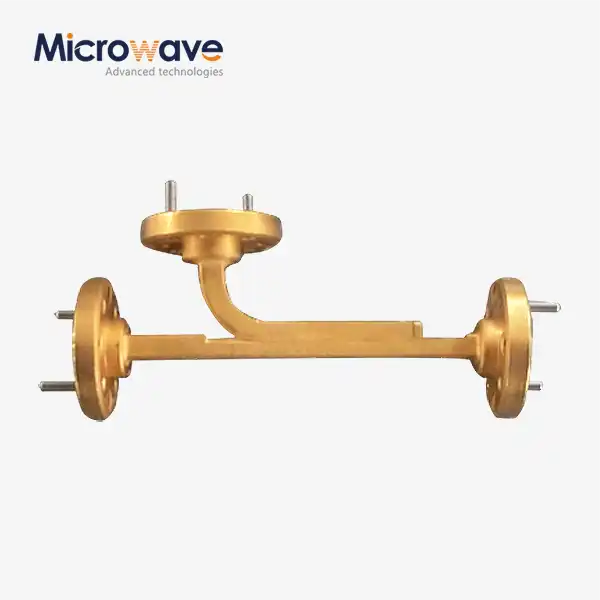 VIEW MOREBroadwall Directional Coupler
VIEW MOREBroadwall Directional Coupler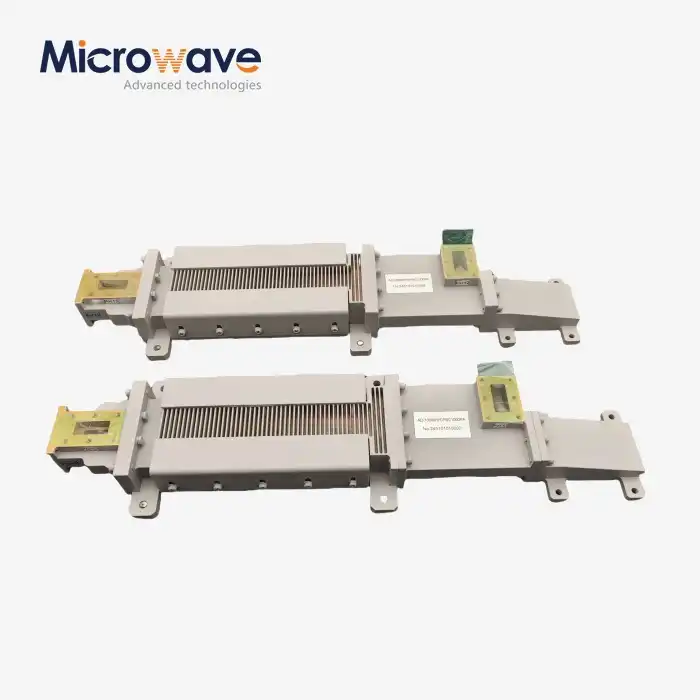 VIEW MOREWG Circulator
VIEW MOREWG Circulator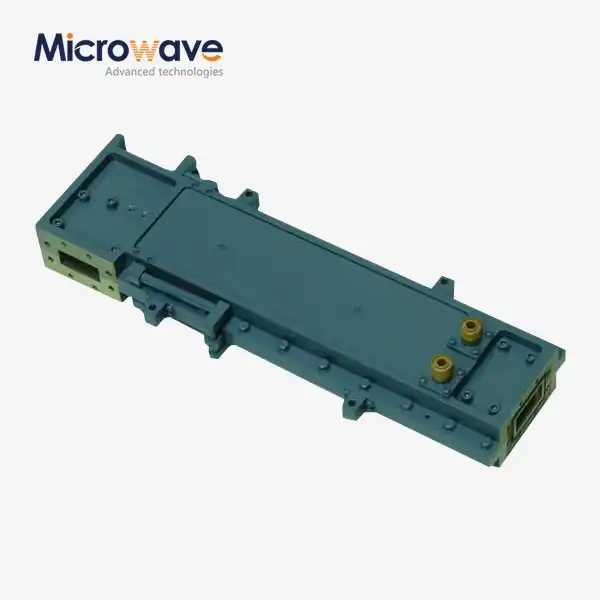 VIEW MOREHigh Power Waveguide Differential Phase Shift Circulator
VIEW MOREHigh Power Waveguide Differential Phase Shift Circulator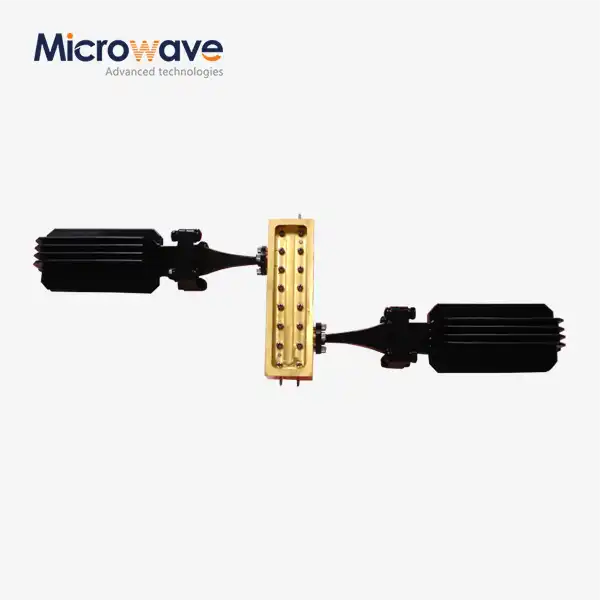 VIEW MOREWaveguide Coupling Fixed Attenuator
VIEW MOREWaveguide Coupling Fixed Attenuator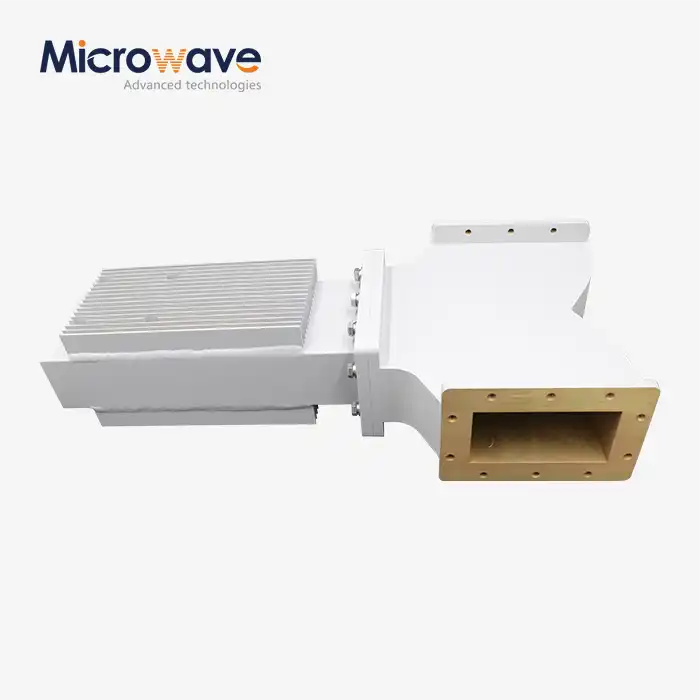 VIEW MOREWG Isolator
VIEW MOREWG Isolator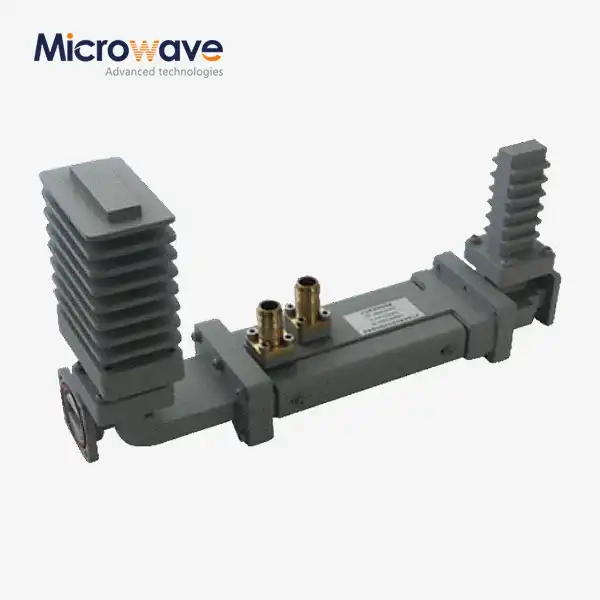 VIEW MOREHigh Power Waveguide Differential Phase Shift Isolator
VIEW MOREHigh Power Waveguide Differential Phase Shift Isolator VIEW MOREWG Band Stop Filter
VIEW MOREWG Band Stop Filter VIEW MOREWG Low Pass Filter
VIEW MOREWG Low Pass Filter




